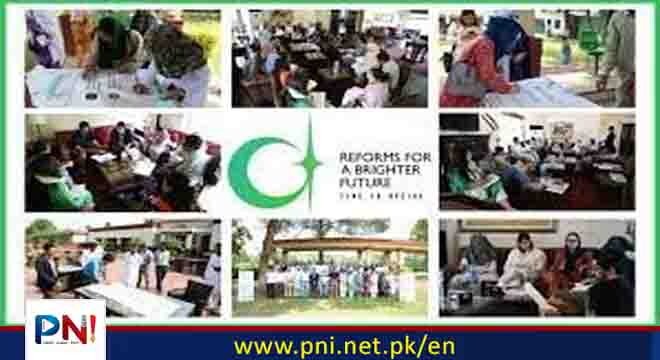PESHAWAR, September 22 (ONLINE): The World Bank has launched a new program to foster debate on the critical development policy issues facing Pakistan. ‘Reforms for a Brighter Future: Time to Decide’ is intended to engage in discussions with a broad range of stakeholders on what fundamental policy shifts are most needed to durably steer the economy towards stronger, more climate-resilient and sustainable growth and development.
A press release issued here on Friday stated that as part of the ‘Reforms for a Brighter Future’ engagement program, the World Bank together with the Pakistan Institute of Development Economics, conducted extensive consultations across the country to seek inputs and feedback on the recommendations included in the draft Discussion Notes.
These have included discussions with students across 21 universities and provincial roundtables with thinkers from academia, and the public and private sectors. Participants in all four provinces have shared insights and perspectives that have helped shape the understanding of what it would take to put Pakistan back on a path towards sustainable, climate-resilient, and inclusive growth.
The ‘Reforms for a Brighter Future’ program will continue over the following months both online and at in-person events across the country, including the national conversation that will take place in Islamabad today and tomorrow.
This consultation program includes the publication, today, of a series of draft Discussion Notes These will be progressively enriched by feedback received from a broad range of stakeholders.
The Notes, which draw on international experience as well as a large body of evidence on Pakistan, propose fundamental policy shifts that are needed to move away from the current low-growth, anti-development status quo:
“Pakistan has been facing numerous economic hardships including inflation, rising electricity prices, severe climate shocks, and insufficient public resources to finance development and climate adaptation—when the country is among the most vulnerable to climate change impacts.
It is also facing a “silent” human capital crisis: abnormally high child stunting rates, low learning outcomes, and high child mortality.”, said Najy Benhassine, Country Director for the World Bank in Pakistan.
“These discussion notes contribute to debates on long standing policy issues that are muting Pakistan’s high economic and development potential. There is reasonable consensus on priorities and challenges.
Determining specific solutions requires open debates on concrete, fundamental policy decisions. We hope this program of discussions will help build a consensus around a path towards inclusive, sustainable, and climate-resilient development”.
Follow the PNI Facebook page for the latest news and updates.









